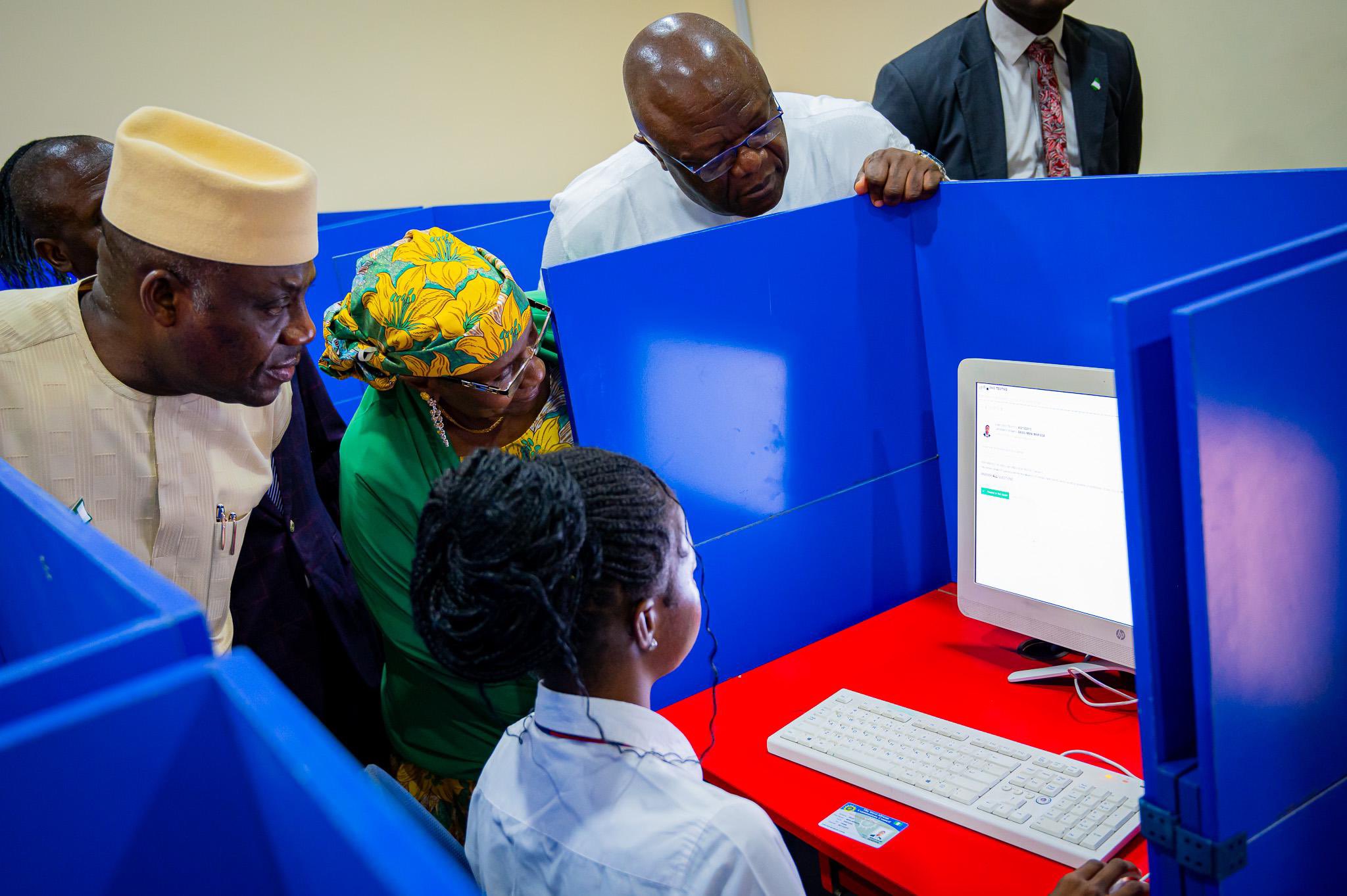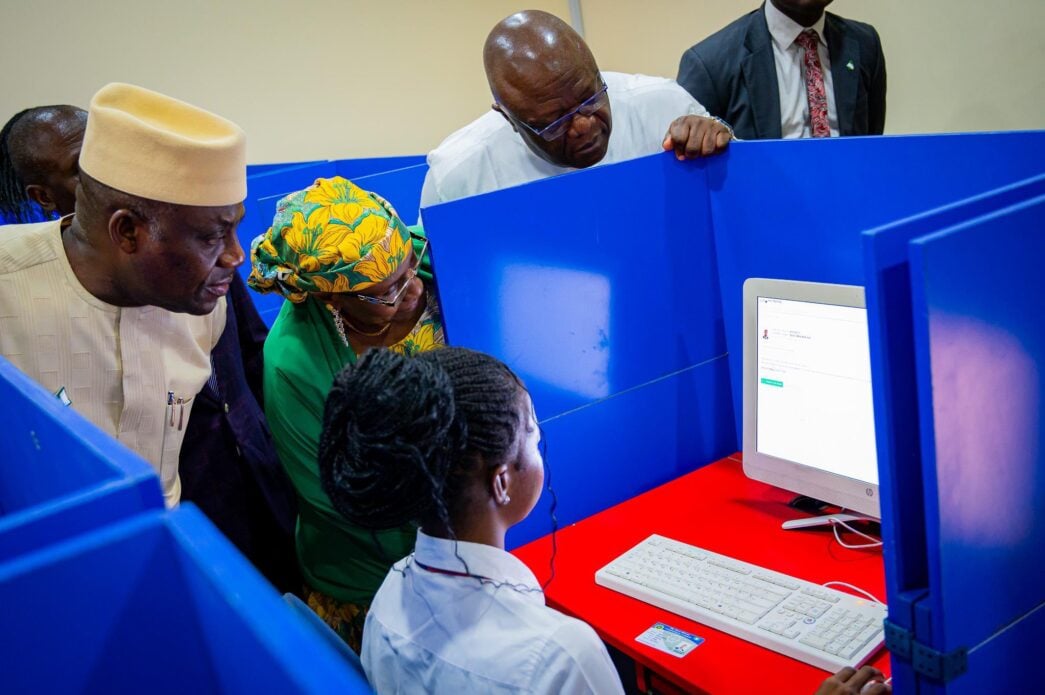Education minister Tunji Alausa (wearing a cream cap) inspecting a CBT exam
The house of representatives has asked the West African Examination Council (WAEC) to halt its transition to computer-based test (CBT) for the 2026 Senior Secondary School Certificate Examination (SSCE).
The lawmakers issued the directive on Thursday after noting that many schools, particularly those in rural communities, lack the facilities and personnel required to implement a full shift to CBT.
The decision came after lawmakers adopted a motion of urgent public importance sponsored by Kelechi Wogu during Thursday’s plenary session, which was chaired by the speaker, Abbas Tajudeen.
The motion was titled “Need for Intervention to Avert the Pending Massive Failure of Candidates Intending to Write the 2026 WAEC Examination Using Computer-Based Testing (CBT), Capable of Causing Depression and Deaths of Students.”
Advertisement
It noted widespread concerns about the preparation level of schools across the country.
Leading the debate, Wogu emphasised that WAEC oversees examinations that decide students’ qualification for higher education, pointing out that most tertiary institutions demand a minimum of five credits, including English Language and Mathematics, for admission.
He noted that the 2025 WAEC result portal experienced technical glitches, causing distress among candidates and raising concerns about the council’s preparedness for a full CBT transition.
Advertisement
Wogu further pointed out that, unlike the Joint Admissions and Matriculation Board (JAMB) exams, WAEC candidates must sit for at least nine subjects, including practical, objective, and theoretical components.
The lawmaker warned that rushing the implementation could result in mass failure, frustration, depression, and potentially foster social vices among students.
He therefore suggested allowing at least three years of preparation before fully rolling out the policy, aiming for implementation in the 2029–2030 academic session.
The house approved the motion unanimously and directed its committees on basic examination bodies, digital and information technology, basic education and services, and labour, employment, and productivity to engage with relevant stakeholders in the education and technology sectors.
Advertisement
The committees are required to submit their reports within four weeks for subsequent legislative action.
WAEC, supported by the federal government, had previously revealed plans to administer the 2026 May/June examination using CBT, building on the partial implementation of the system for private candidates in 2024.






